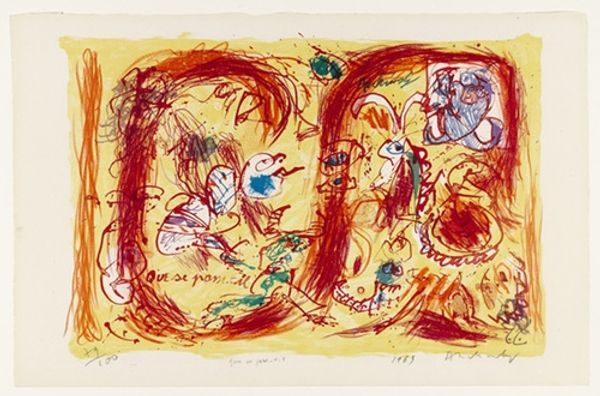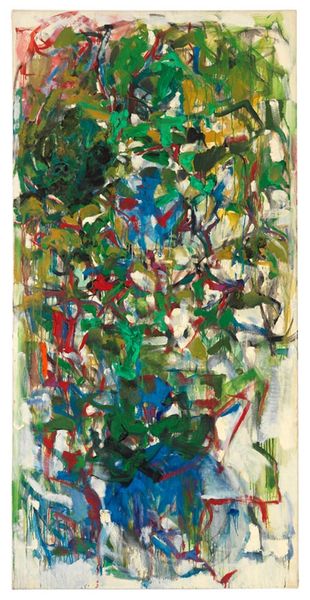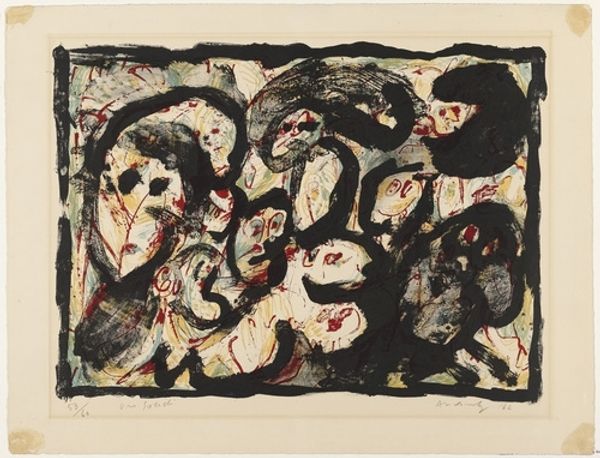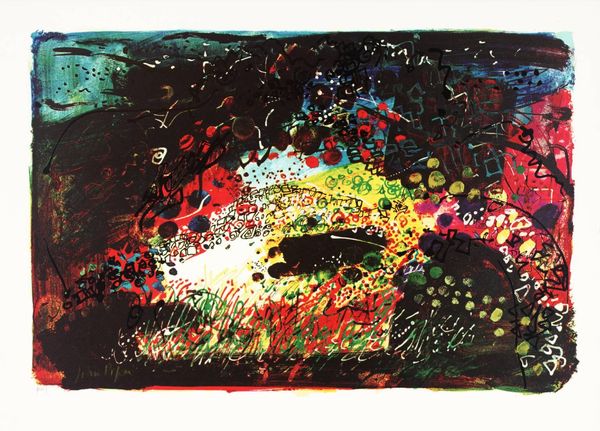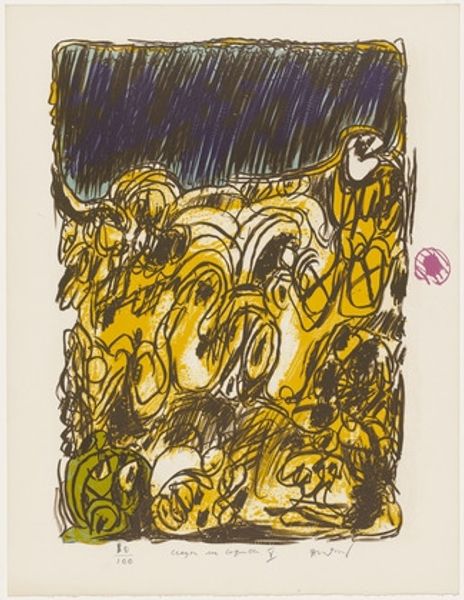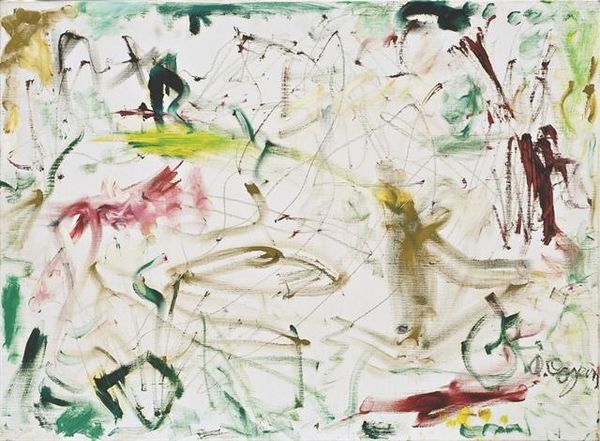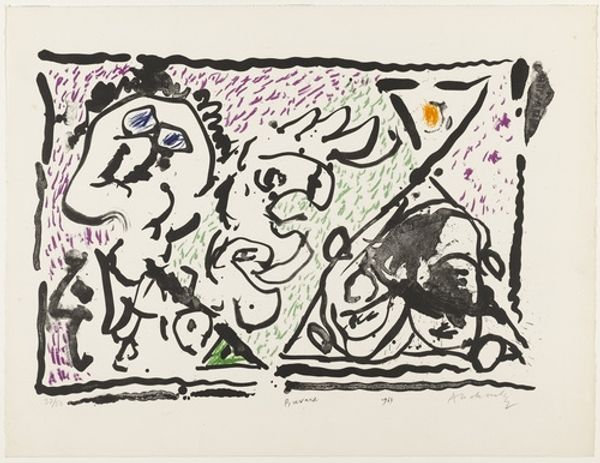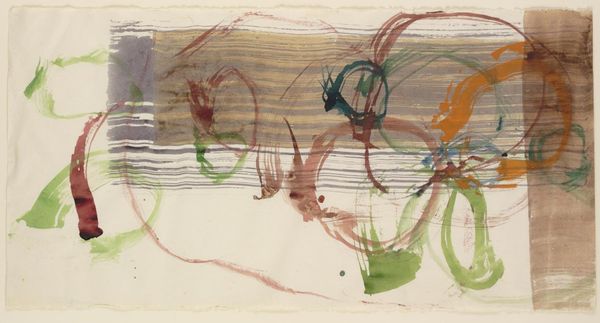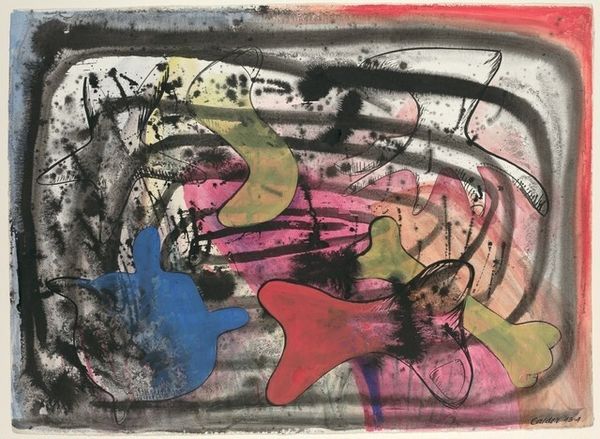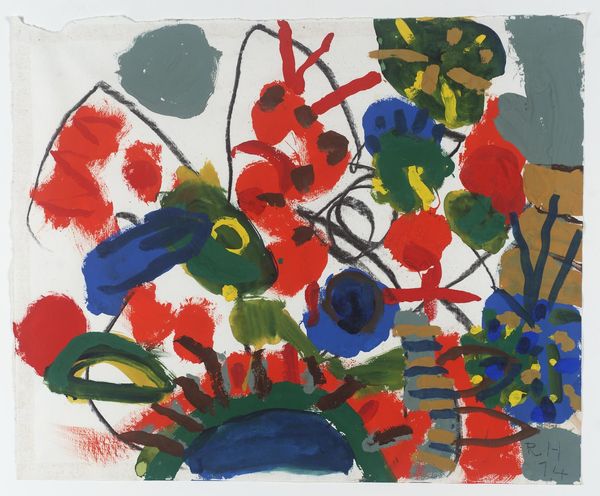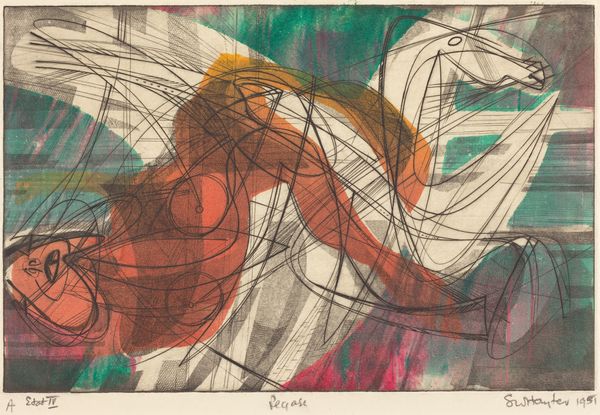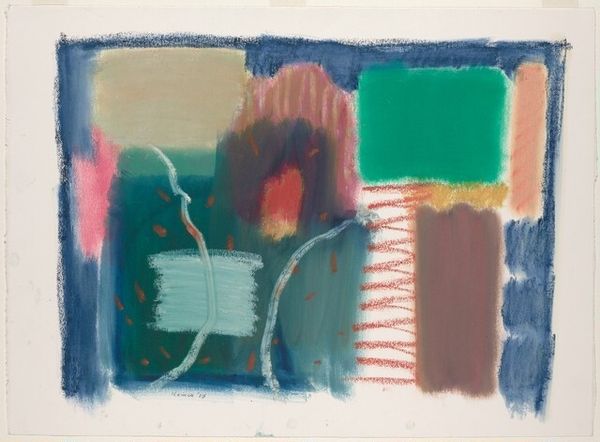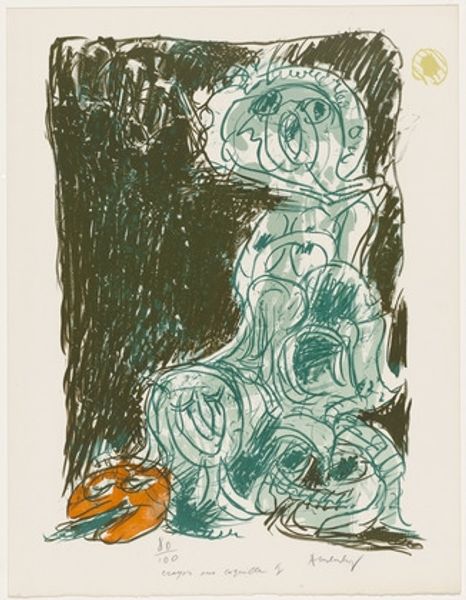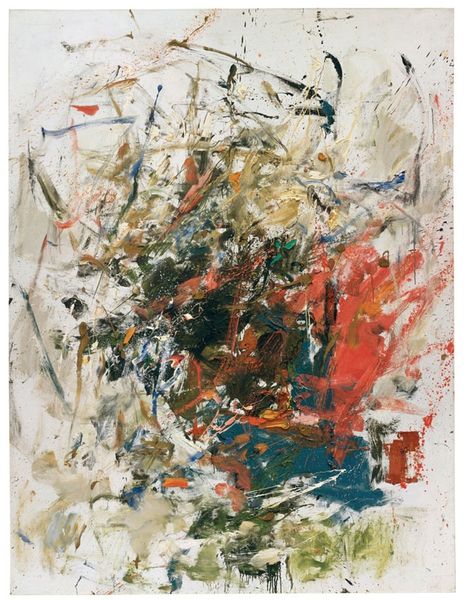
Copyright: Pierre Alechinsky,Fair Use
Curator: Before us, we have "Aleching," a 1963 mixed-media piece on paper by Pierre Alechinsky. It’s an intriguing blend of ink drawing and painting, deeply embedded within the Art Informel movement. Editor: My initial reaction is chaotic, yet contained. The swirling lines and blots of ink evoke a sense of unrestrained energy, but it's all carefully framed. The colour palette feels bold yet somehow organic. What am I looking at here, really? Curator: Considering its context, it feels almost defiant. Post-war, there was this strong pushback against traditional artistic norms, and Alechinsky, along with the Cobra group, sought a more raw, spontaneous mode of expression that could break through ideological constraints. They were looking for art that communicated pure human feeling. Editor: I can definitely sense that raw feeling in the unbridled lines. See the recurring motif of the circle, and within the circle, the suggestion of monstrous forms – it seems almost Jungian, tapping into universal anxieties. The symbols suggest atavistic terrors lurking just beneath the surface of the conscious. Curator: Indeed. We need to acknowledge that the so-called "universal" is invariably viewed from a white European vantage, particularly at mid-century. What I see is a challenge to that presumed authority. A deconstruction of aesthetic hierarchy mirroring social hierarchies. The scribbles, splatters...they become an assertion of self against ingrained artistic hegemony. Editor: Yet the visual language has precedence in earlier periods. Think of cave paintings, shamanic art--even, say, Leonardo's ink blots intended to evoke hidden forms. Perhaps this expresses humanity's continued attempt to reach past words towards universal understanding that has been hidden, distorted, or overlooked by traditional patriarchal institutions. Curator: Perhaps, or, we can examine its effect: The ink-splash technique becomes, perhaps, the mark of resistance, a refusal of fixed narratives in art, reflecting wider anti-colonial sentiments growing then. "Aleching" is not merely expressive; it's demonstrative of its political environment, a critical articulation in visual form of this changing moment. Editor: I see your point. It's a provocative piece. The symbols resist singular interpretations, fostering engagement. It leaves us wondering about humanity and memory. Curator: A powerful example, in fact, of how personal expression also holds collective, critical power.
Comments
No comments
Be the first to comment and join the conversation on the ultimate creative platform.
